BALTIMORE, MD – The African penguin (Spheniscus demersus) colony at Maryland Zoo has a new member thanks to a recommendation by the national African Penguin Species Survival Plan© (SSP).
The new arrival is a female named Gerry who hatched at the Monterey Bay Aquarium on November 30, 2022. She has been sent across the country to breed with one of several genetically matched males in the Maryland Zoo colony, which is the largest African penguin population in North America and second largest managed population in the world.
After a standard 30-day quarantine, Gerry has been introduced to her new colony and is settling in nicely.
Breeding recommendations like Gerry’s are based on genetic matches and are critical to helping rebuild the global population of these birds, which were recently downgraded to “critically endangered” by the The International Union for Conservation of Nature (IUCN).
“The work of the African Penguin Species Survival Plan is incredibly important to the future survival of these birds,” said Maryland Bird Curator, Jen Kottyan, who is the national Program Leader for the African Penguin SSP, which works with institutions accredited by the Association of Zoos and Aquariums. “We’re preparing to introduced Gerry to potential mates and will be looking for appropriate behaviors, like bonding and establishing a nest that are precursors to mating.”
“Gerry is curious and playful.” said Aimee Greenbaum, Curator of Aviculture at the Monterey Bay Aquarium. “She was always one of the first penguins to go investigate some new enrichment item, she’d often be seen interacting with our guests through the windows and she enjoyed following the adult penguins around to see what they were up to.”
Gerry is named after Gerry Low-Sabado, a dedicated educator and community preservationist in Monterey Bay who passed away in 2021. Her Chinese ancestors founded a fishing village near where the Aquarium stands today. They fished for squid at night, using lanterns hung from their boats to attract squid to the surface — a method the fishing industry still uses today. In 1906 the villagers were driven from their land by a suspected arson, and racist laws prevented them from settling nearby. But their descendants keep their legacy alive today.
“Gerry Low-Sabado was passionate about her family’s story – a story of innovation, displacement, and persistence,” says Kera Abraham Panni, senior community engagement manager at the Monterey Bay Aquarium. “Like the Chinese Americans of the Monterey Peninsula, African penguins are surviving despite formidable odds. Gerry the penguin is a testament to that resilience.”
One of the threats to African Penguins in the wild is the declining number of fish for them to eat due to overfishing off the coast of their native habitat in South Africa and Namibia. One way the public can help the situation is by using the Aquarium’s Seafood Watch, to make sure any seafood they purchase is sustainable.
African Penguins at Maryland Zoo
Maryland Zoo is home to the largest colony of African penguins in North America and has successfully bred more than 1,000 chicks. The birds are one of the Zoo’s Signature Animal Programs and among its most popular visitor attractions.
To underscore the strong tie between the colony in Baltimore and conservation work halfway around the world, the Zoo’s award-winning Penguin Coast habitat is reminiscent of the fishing villages you might encounter along the western coast of South Africa and Namibia, where these penguins live in the wild.
Despite being a protected species, the number of wild African penguins has declined dramatically. There is a real chance the birds will become extinct within ten years.
Penguin colonies compete with commercial fishermen for access to their main food source. They are also vulnerable to ocean pollution, including spills from oil tankers and human disturbances on penguin nesting grounds.
For years the Zoo’s penguin team has been traveling to support a seabird rescue facility in South Africa. Maryland Zoo is also a founding member of a similar facility that is getting up and running in Namibia.
Click here for more information about Maryland Zoo’s African penguins and here to learn about penguin conservation in the wild.

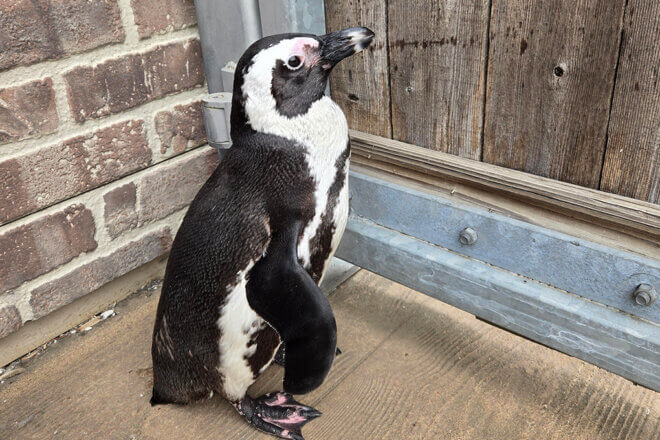
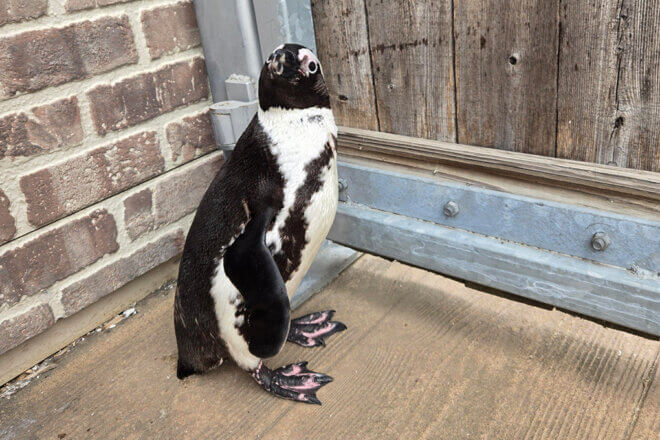
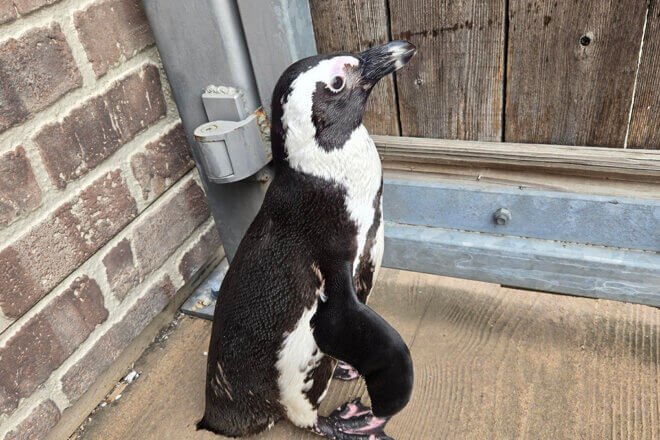
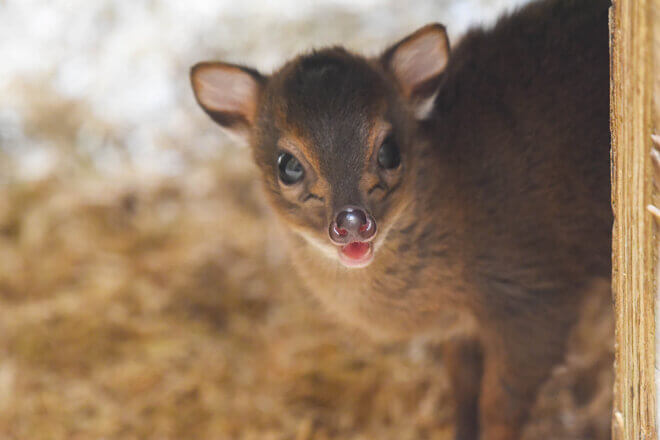
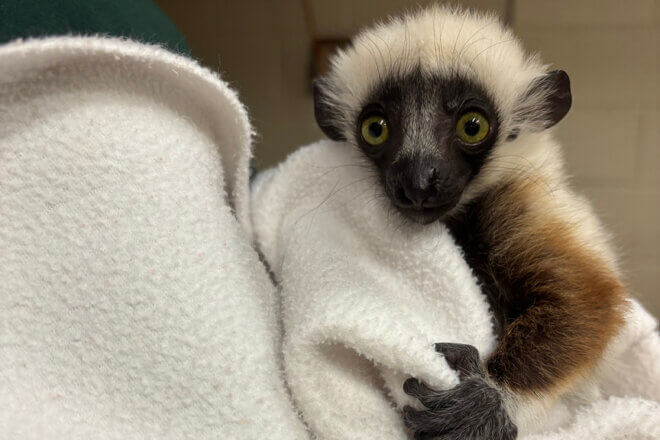
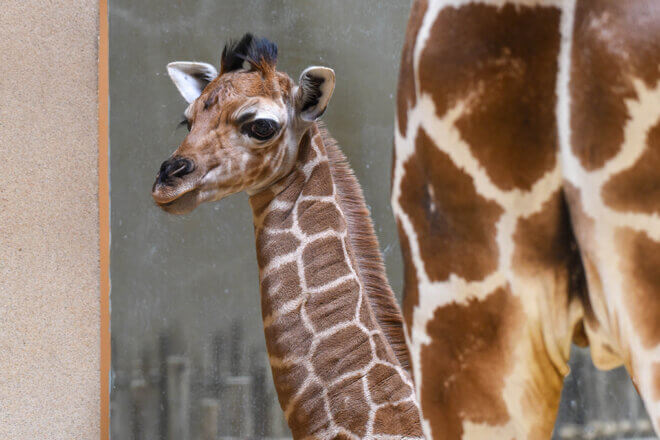
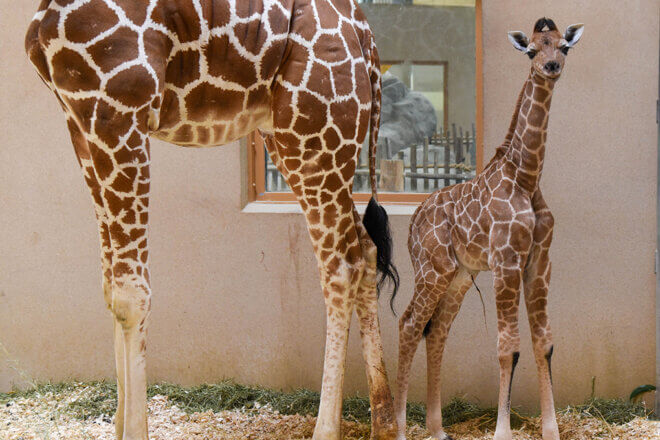
Share this article